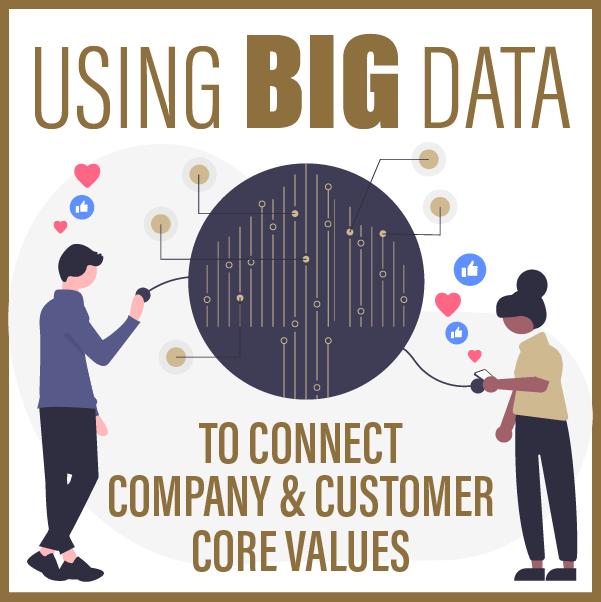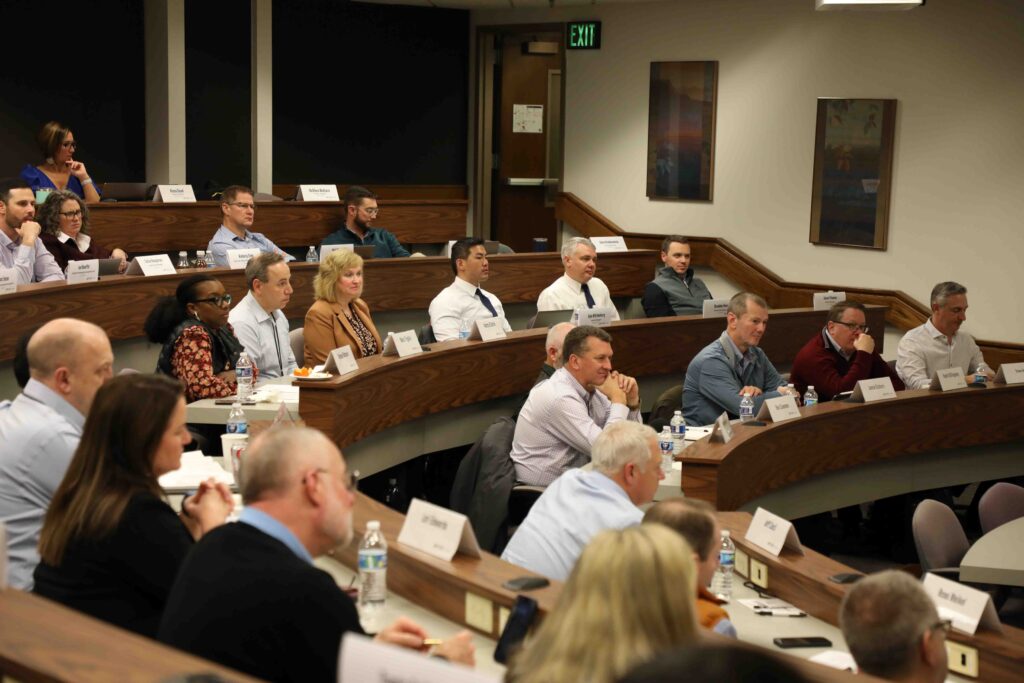Rev iewers
iewers
Doug Abney, Purdue University Agricultural Economics Research Intern, and Dr. Brady Brewer, Assistant Professor
Article
Big data and big values: When companies need to rethink themselves by Maria Assunta Barchiesi, Andrea Fronzeti Colladon
Journal
Journal of Business Research, 129 (2021) 714-722
Summary
As the world becomes more interconnected through the internet, opportunities arise. Today, businesses can collect data within many realms such as social media where more voices have more power than ever before. Social media platforms like Twitter and Facebook offer an outlet for sharing ideas, interests and promoting content that can be seen by just a few friends, or in some cases, on a national or global scale. These platforms provide the opportunity to express thoughts and opinions that can have a broad reach.
With the ability of the world to hear your thoughts, there exists an emerging opportunity for businesses to learn from you. Businesses can comb valuable data from social media, and companies can now utilize social media users’ opinions in their decision-making processes to meet the needs of their stakeholders. At the moment, the implementation of a data integration solution like this is relatively unexplored.
This article’s researchers designed a system for measuring the hierarchy of core values. The study elaborates on the collection and text analysis of tweets related to the core values of successful companies. These firms included those listed in Fortune’s ranking of the World’s Most Admired Companies (2013–2017). Machine Learning analyzes text and determines the complexity, negative or positive sentiment, and emotionality within the writing.
In the study, researchers created a system for business strategists to determine which core values match their intended target market. This tool could equate customers’, employees’ and ordinary peoples’ preferences to a company’s core values. Those core values included customer service and product excellence, but could also include corporate social responsibility ideals, such as: reducing carbon footprints, sustainability, charity, social justice, etc. Using this system, business strategists could then decide if it is economical to continue to invest time and capital into specific initiatives. A system like this is data-intensive and would normally require a data scientist. The authors also note this system could have many extensions for analyzing where customers’ social media engagement aligns with the company’s activities.
What this means for Food and Agricultural Business
Agribusinesses, like any other businesses, need to evaluate their core values relative to those of their intended market. This ensures a business’ message is appealing to its target market and helps with marketing. Social media is a key outlet for individuals’ thoughts and ideas that can easily reveal their values to the public. This data offers the opportunity for businesses to examine new and old products and services and how they are perceived by their customers. While most companies maintain a presence on some or all major social media platforms that allows them to market products and monitor customer beliefs, agriculture is still playing catch-up in implementing a system where this information is aggregated and analyzed on a large scale.
Data analysis allows business strategists to make more informed decisions on where they should invest and pull back. Big data can aid in tracking growing trends in industries, and implementing big data allows for the prediction of market factors and growing areas of interest with a higher degree of certainty. Agricultural businesses could determine new areas of investment and areas for divestment by utilizing these tools.
Big data scraped from social media may also aid in branding. As the world changes, so too do peoples’ beliefs and values. Companies can strategically avoid brand tarnishing by utilizing social media data. For example, a topic of concern and reoccurring agricultural issue within the meat industry is the humane treatment of animals. Agribusinesses within the meat industry that analyze social media data regarding animal rights over time could determine if their core values align with their intended target market and if businesses should alter company initiatives. Social media observation would offer an opportunity for companies to better align their internal systems and targeted external initiatives such as education and branding with customer beliefs.
Social media has become a stage for supporting ideas. Agriculture is an industry that relies heavily on natural resources, and social media conversations include forestry conservation, renewable resources, fair trade, and much more. Additionally, conversations regarding sustainability and climate change occur daily, both of which impact modern agriculture. Big data can create untapped marketing opportunities. For example, when specific social responsibility conversations proliferate on social media, businesses can take this opportunity to attract new customers by promoting their company and what they are doing to support a given initiative.
While agribusinesses may be wondering what it takes to harvest data from the internet, the agriculture industry needs to push for growth in data science. Data scientists can collect, manipulate and illustrate data that can change business strategies on all levels. At Purdue University, agricultural companies have partnered with The Data Mine. This partnership allows students with interests in data analytics to work alongside corporations that need data-driven solutions. As agribusinesses have a growing need for data science within their companies, academics are evolving to understand new challenges and processes for emerging positions in agricultural data analysis.
Harvesting big data from the internet can be daunting, but analyzing company product and service sales data is a starting point. Every company has some form of data that sits idly without analysis — it just takes a creative look to understand what insights exist within this information. Data is a resource, and agribusinesses must acquire the resources it takes to analyze this data in order to turn it in to actionable insights.



